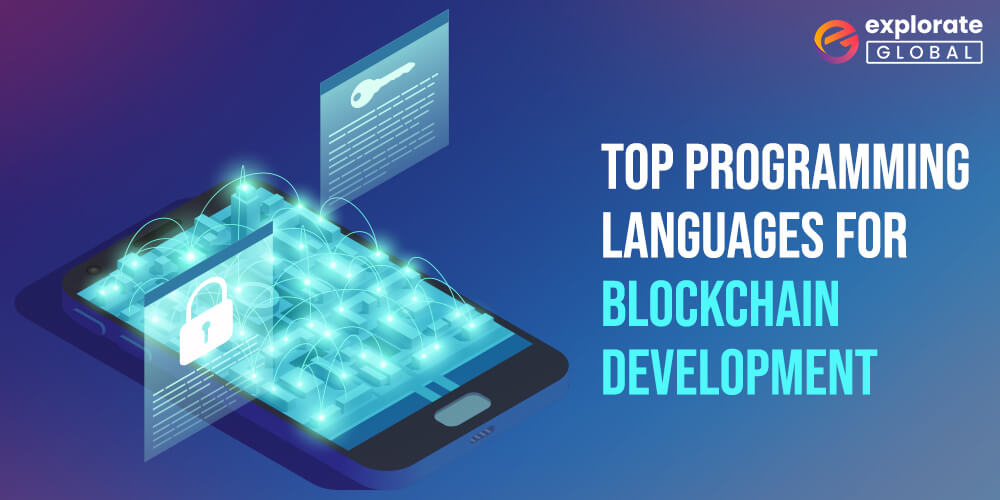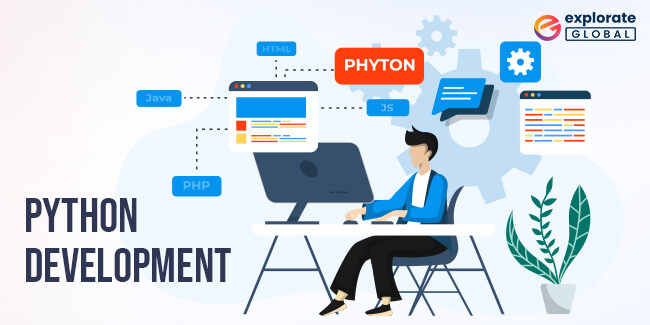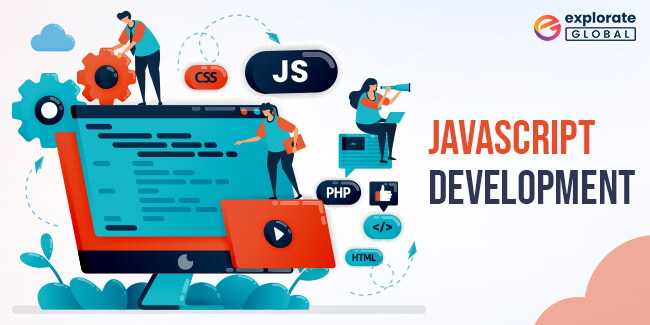
Blockchain programming language has been one of the significant technology trends in the last few years. Be it a cryptocurrency, supply chain tracking applications, or smart contracts. Blockchain development is a promising solution in many use cases in both public Blockchain space and enterprise solutions. Over the years, this technology has helped mitigate the usual challenges many businesses face.
Blockchain programming language has also been recognized to hold the perspective to renovate the whole economy, be it education, legal domain, travel, or the healthcare industry. Between 2017 to 2020, the demand for Blockchain development services increased by around 2000%, and it became the most valued technology. By 2024, the net worth of the Blockchain market is estimated to be approximately $20 billion.
Blockchain technology is widely used in the industry due to the high level of security in commercial transactions; from enterprises to commercial banks, Blockchain software developers are required everywhere. Any technology lover should be familiar with the top programming languages that are most appropriate for Blockchain development services because the Blockchain programming language is the one that governs its existence.
Here we have listed some of the top programming languages you can learn to build Blockchain applications. But before that, let’s find out what Blockchain programming language actually is.
What is Blockchain Development?
Blockchain is a sequence of blocks, as its name suggests. In this sense, “blocks” refer to digital data that is connected via encryption. Each block consists of digital data, a timestamp, and a cryptographic hash algorithm connecting it to the preceding block, which is designed to make it difficult to change the data, ensuring openness while still guaranteeing safety.
Blockchain is synonymous with protection since it is nearly impossible to tamper with these blocks. Because of this, this technique is frequently used in industries like banking and finance, etc. Actually, the integration of Bitcoin on a blockchain originally brought it to public attention.
People ultimately want to know that their money is secure. Developers of Blockchain applications are consequently in high demand. Furthermore, having a competitive edge over other developers will come from understanding the top blockchain development programming languages.
14 Best Programming Languages for Blockchain Development
1. C++
Even as the programming language used to create blockchains, C++ is well-known in the computer industry. Due to its many capabilities, including move semantics, sophisticated multi-threading, basic memory control, and other object-oriented functionality such as function overloading and runtime polymorphism, C++ is widely used.
As Blockchain shapes the blocks via cryptographic chains, these various OOPS characteristics of C++ enable developers of Blockchain apps to combine functions and data in a single structure easily. Similar to how Bitcoin is popular, Blockchain is also, and the very first Blockchain implementation was mostly written in C++.
2. Python

Python is quickly overtaking other programming languages in popularity in the software industry. Python may be one of the best Blockchain programming languages for you if you are a novice developer. Python development has the drawback of being an interpreted programming language, which makes it difficult to use with Blockchain’s intricate cryptographic processes. On the other hand, Python development is an object-oriented programming language that aids in managing a number of performance-related overheads.
One more advantage of Python is that software developers may quickly prototype their own ideas without the need for laborious coding. Python is ideal for Blockchain development because it has strong open-source language support. Several Python plugins, libraries, development manuals, and different resources are available online for practically every problem you run into when developing a Blockchain project.
Also know: Top 6 Python Online Compilers/Interpreters for Python Developers
3. Java
When it comes to popularity and efficiency in Blockchain development, Java is a serious rival to C++. This is because the API (Application Programming Interface) used in Java development is extensive and encompasses several Java classes, interfaces, packages, etc. As a result, it is appropriate to develop applications without really understanding how they are implemented internally. Additionally, Java’s portability makes it valuable in blockchain technology.
Because Java applications can be written once and executed anywhere, they can be ported to several systems. These programs also don’t require a system-particular architecture because they run on the Java Virtual Machine (JVM), which is available on all platforms. Because of its universality and other common properties, Java is perfect for creating Blockchain applications.
4. Solidity
The Ethereum Virtual Machine runs the blockchain’s fastest-growing smart contract programming language, called Solidity (EVM), which was started by Ethereum, an operating system and distributed computing platform based on the Blockchain. Therefore, solidity is adequate to address issues faced by developers even though it was created with Blockchain in mind.
Developed similarly to the ECMAScript, Solidity contains useful features like static typing, variadic return, etc. So, learning this programming language is necessary if you have to emphasize Blockchain development.
5. Vyper
Python 3 gave rise to the most recent Blockchain programming language, Vyper. In spite of the fact that Vyper lacks all of Python’s features, it is nonetheless efficient in Python 3 syntax. To replace Solidity, Vyper was created. Like Solidity, it is frequently employed for the EVM (Ethereum Virtual Machine).
However, Solidity and Vyper contain different kinds of control structures and handle security challenges in various ways. Additionally, Vyper provides features and functionality that are comparable to Solidity’s OOPS, like endless loops, recursive calling, modifiers, etc. Therefore, it aids in eliminating the security problems brought on by these functionalities. So consider Vyper if you need Blockchain programming for creating smart contracts.
6. JavaScript

The most widely used programming language is JavaScript, which is also a favorite among Blockchain engineers thanks to NodeJS – a JavaScript runtime environment. Additionally, because JavaScript is pre-installed on the majority of PCs, people can create competent and ground-breaking Blockchain applications with it. As a result, JavaScript has a significant edge over other programming languages because it is used in some capacity by every web system.
Therefore, JavaScript developers can concentrate on the application code for the Blockchain without being concerned about incorporation while utilizing JavaScript. JavaScript developers can create and distribute Blockchain applications using the Sidechain Development Kit (SDK).
7. Golang
Go is one of the best programming languages for quickly creating effective Blockchain systems. Go is the perfect programming language for building hyper ledger fabric, the foundation for generating Blockchain apps. Go is ideal for Blockchain development since it is a statically typed, compiled language.
Generics, exceptions, annotations, classes and inheritance, constructors, and other features that improve speed are also included. Additionally, simple and quick to learn is the language Go. There are also more than 800,000 software developers on the Go language network.
8. C#
C#, C++, and Java have identical syntax, which is perfect for Blockchain programming. Although C# was exclusively developed as a Microsoft programming language initially, it is currently quite well-known and regarded as one of the best Blockchain programming languages. Open-source programmers can easily write C# code that is extremely portable and will work on any hardware and operating system, including Android, Windows, Mac, Linux, etc.
Additionally, because C# is known as OOPs language, those who create Blockchain applications can optimize performance. One example of a project written in C# is Stratis – a Blockchain Service provider enabling companies to develop apps on Blockchain development platforms easily.
Also read: How Does Blockchain Support Data Privacy
9. Simplicity
Simplicity is one high-level Blockchain programming language specifically developed for smart contracts. It is among the top programming languages for open-source and professional developers to create smart contracts. Simplicity also aims to reduce the Bitcoin Script’s low-level and difficult understanding.
Simplicity improves the work capability of Blockchain app developers, which contributes to a lot quicker development period since it hides the low-level logical components from Bitcoin developers. Furthermore, the Elements development platform, an open-source platform with sidechain capacity, is also compatible with Simplicity. Therefore, the numerous features and capabilities of Simplicity are also available to blockchain app developers creating sidechains on Elements.
10. Rholang
An excellent Blockchain language for creating smart contracts is Rholang. This programming language has a holistic approach instead of an object-oriented one, which is very beneficial in addressing a number of Blockchain-related issues. For example, applications written in Rholang estimate the entire program as a series of functions and execute them one after the other.
Rholang stands out from other programming languages, such as Python or C, that use variables to store information and modify their values over time. As a result, Rholang is the most often used Blockchain development language in this category since it adheres to the functional programming paradigm instead of an object-oriented one.
11. Rust
The most recent Blockchain programming language, called Rust, intends to provide an open-source platform for creating efficient and quick Blockchain systems. When it comes to jobs that require a CPU, Rust is ideal. With Rust, you can design blockchain applications using either a functional or an imperative approach.
It is adept handling of changeable states makes it one of the best programming languages for Blockchain applications. The Rust compiler also provides breathtaking Blockchain optimization. Because it is quick, secure, and synced, this Blockchain scripting language is ideal for creating practical Blockchains.
12. Scilla
Scilla, a different recently developed Blockchain programming language, is supported by Zilliqa to lower security concerns and offer proper authentication for smart contracts. Before blockchain commissions a smart contract, these proper verifications provide static assurances of that contract.
Scilla eliminates the need for universal audibility and reduces the incidence of error-prone codes. Additionally, because it is compiled into bytecodes and is, therefore, extremely portable, the intermediate-level Blockchain programming language.
13. PHP
Hypertext Preprocessor, or PHP, was developed in 1994 by Canadian-Danish programmer Rasmus Lerdorf. Standard PHP is an open-source, platform-independent language that can be written on a variety of operating systems thanks to Zend Engine. In addition, its source distribution includes an expandable library that makes it easier for blockchain developers to complete their work.
Many online application developers advise using PHP, a well-liked programming language utilized to create blockchain programming. Until 2014, the PHP language evolved without a formal written specification; however, starting in 2014, a formal PHP specification was employed.
14. Ruby
Yukihiro Matsumoto created Ruby in Japan, which has excellent memory management features. This language’s primary goals are efficiency and simplicity, which makes it user-friendly for developers and cross-platform compatible.
Ruby enables programmers to frame Blockchain programming via external APIs and plugins. Because it supports several paradigms, blockchain programming can be developed across multiple platforms. To build a more reliable platform, developers can also blend the language’s traits with other languages.
Also know: How To Build A Crypto Trading Bot
Frequently Asked Questions
Q1. What Do You Need To Learn To Start Developing On The Blockchain?
The answer to this question is too vast. Let us review a few essential pointers:-
- Strong knowledge of Blockchain development, i.e., its features and popular platforms.
- Responsiveness of the points of failure in the whole system.
- Proficiency in top Blockchain programming languages.
- Understanding popular cryptocurrencies and the concept of cryptocurrency mining.
- A background in web development, security, and networking.
Q2. What Programming Languages Does Blockchain Use?
There are plenty of programming languages that can be used for Blockchain development, including primitive languages like C++, Java, JavaScript, and Python, and new entrants like Solidity, Scilla, and Rust.
Q3. Are Blockchain Developers In Demand?
Yes, Blockchain developers are highly in demand. For example, the need for Blockchain developers in 2020 was 517% above what was recorded in 2019. And this number is bound to rise in the future.
Conclusion
It is simple to foresee how Blockchain technology will keep revolutionizing how assets and data are transferred in contemporary businesses. Similar to how it affects cryptocurrency, it will significantly impact large corporations like the banking sector and big pharmaceutical businesses at this time.
Additionally, as more and more Blockchain Development organizations turn their attention to this outstanding technology, opportunities will arise for those who possess advanced knowledge of a Blockchain programming language.

